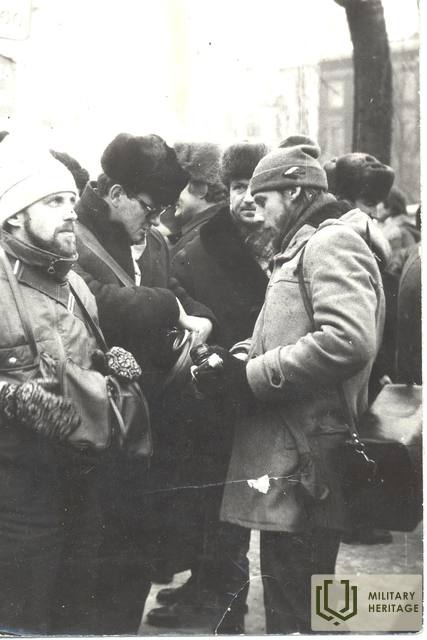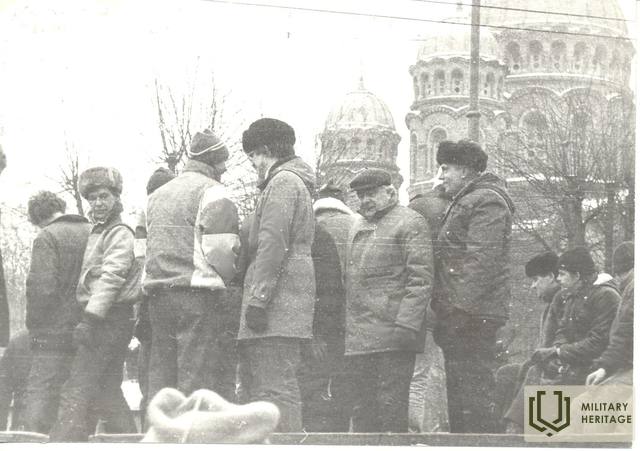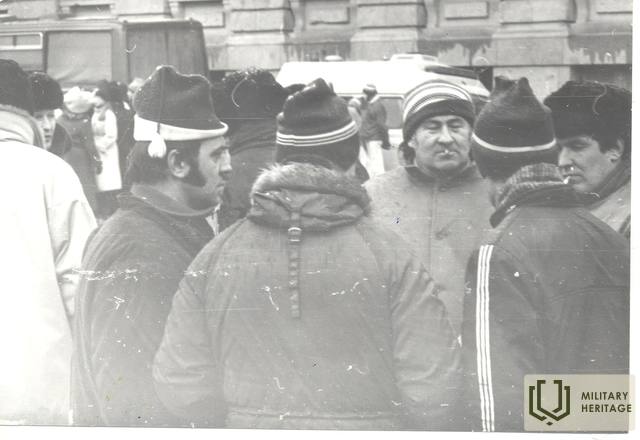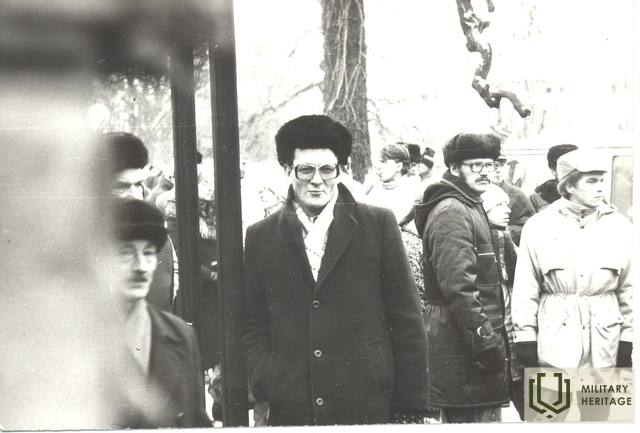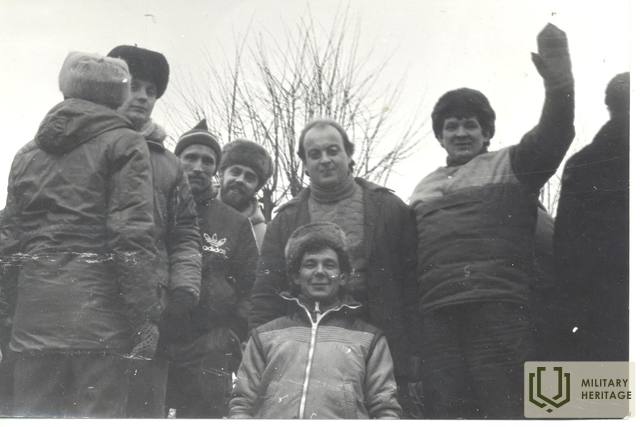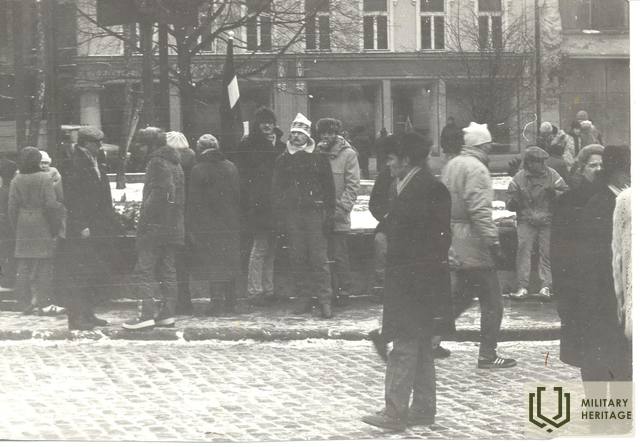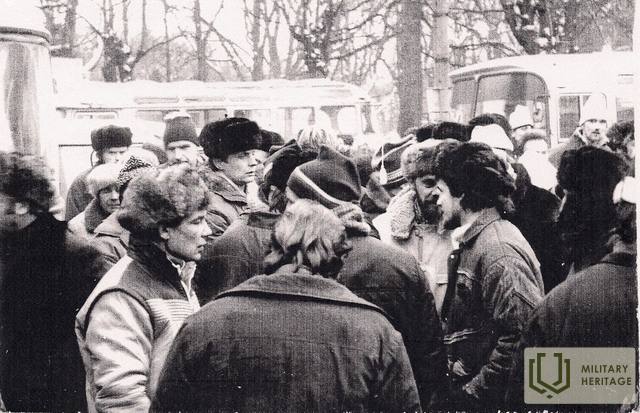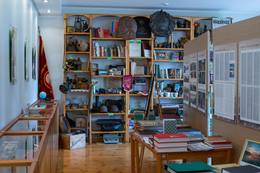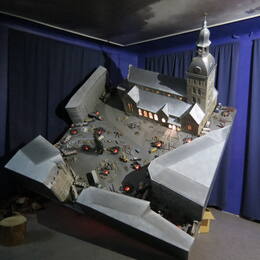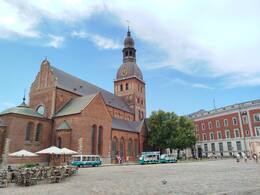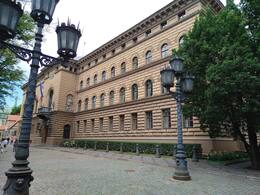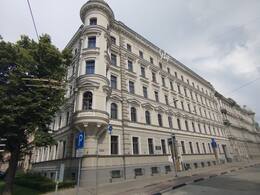Vaidaviečiai ant barikadų
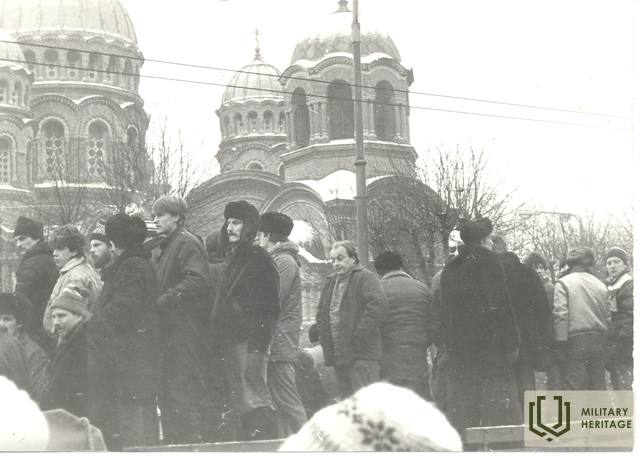
2020 m., artėjant 1991 m. barikadų 30-mečiui, Vismants Priedīte pasakoja apie vietos gyventojų dalyvavimą šiuose istoriniuose įvykiuose.
Dalyvių žygis saugoti barikadas prasidėjo sausio 14-osios rytą, kai į Rygą išvyko pirmoji savanorių sargybinių grupė.
Siuntą organizavo kolūkio „Vaidava“ valdybos pirmininkas Guntis Pīrāgs, Latvijos liaudies fronto Vaidavos grupės vadovas, statybos vadovas Arnis Urbāns ir Vaidavos parapijos TDP vykdomojo komiteto pirmininkas Modris Karselis.
Užtvaros sargybinių išvykimas į sostinę buvo glaudžiai derinamas su LTF Valmieros rajono skyriaus vadovybe, o atvykus į Rygą – su užtvaros organizavimo centro vadovais. Užtvaros sargybinius pamainomis vežiojo kolūkio vairuotojai Uldis Paltiņš ir Valdis Jansons. Kolūkio sunkioji žemės ūkio technika į Rygą nevyko.
Dalyvavimas barikadų gynime nuo sausio 14 iki 26 d. buvo vykdomas įsitikinimu, o ne jėga. Kasdien į Rygą vykdavo daugiau nei 30 žmonių. Išvykimas į 24 valandų pamainą buvo 20.00 val. Į barikadas eidavo įvairių profesijų žmonės. Aktyvūs dalyviai buvo tiek komunalinio ūkio vairuotojai ir mechanikai, tiek elektrikai, keramikos dirbėjai, Vaidavos devynmetės mokyklos ir Vaidavos specialiosios internatinės mokyklos mokytojai, kitų profesijų darbuotojai. Labai daug Vaidavos gyventojų į barikadų gynimą vyko pakartotinai, 4–5 kartus.
Pagrindinė vaidaviečių veiklos sritis buvo Latvijos Respublikos Ministrų Tarybos pastato apsauga. Taip pat du kartus buvo budima prie Latvijos Respublikos Aukščiausiosios Tarybos pastato. Užduotis nepriklausomybės priešininkų puolimo atveju buvo suformuoti gyvąjį skydą už sunkiosios technikos, išdėstytos priešais pastatą, taip pat stebėti transporto ir žmonių judėjimą bei sekti įtartinus asmenis – galimus provokatorius. Kiekvienos pamainos budėjimo trukmė buvo 24 valandos. Po kruvinų sausio 20 d. įvykių keli vaidaviečiai paaukojo kraujo sužeistiesiems gydyti.
Istorikas Vismants Priedīte
Susijusi laiko juosta
Susijusios vietos
Vaidavos parapijos kraštotyros nuolatinė ekspozicija
Įsikūręs Vaidavos kultūros ir amatų centre.
Eksponuojama paroda, skirta 1949 m. trėmimų atminimui, taip pat Vajdaviečių dalyvavimui Rygos barikadose 1991 m. sausį. Parodoje taip pat eksponuojami pasaulinių karų įrodymai (daugiausia spausdinta medžiaga).
Gamtos ir istorijos objektai, dvarai, švietimo istorija, kultūra, žymūs žmonės, kolūkio laikų medžiaga, namų apyvokos rakandai, banknotai, laikraščiai, žurnalai apie Vaidavos parapiją.
1991 m. barikadų muziejus
Muziejus yra Senojoje Rygoje, netoli Rygos katedros. Jis buvo įkurtas 2001 m., siekiant išsaugoti istorinius 1991 m. įvykių Latvijoje įrodymus. Taip pat galima virtualiai aplankyti muziejų. 1991 m. sausį Lietuvoje Sovietų armija apšaudė prie Vilnios televizijos bokšto susirinkusius žmones ir tankais įvažiavo į minią. Reaguodama į šiuos įvykius, Rygoje buvo surengta apie 500 000 žmonių demonstracija, kuria siekta parodyti paramą lietuviams ir Latvijos žmonių pasirengimą tęsti kovą už Latvijos nepriklausomybę. Siekdami užkirsti kelią panašiems įvykiams Latvijoje, gyventojai pradėjo statyti barikadas siaurose Senosios Rygos gatvėse, kad užkirstų kelią galimiems Sovietų armijos išpuoliams prieš barikadų gynėjus. Šios barikados taip pat buvo kuriamos įvairiuose strateginiuose objektuose ne tik Rygoje, bet ir visoje Latvijoje. Ginant barikadas dalyvavo apie 50 000 žmonių iš visos Latvijos. Barikados buvo populiarus judėjimas, padėjęs atgauti Latvijos nepriklausomybę. Tai puikus nesmurtinio pasipriešinimo pavyzdys viso pasaulio istorijoje.
Domo aikštėje Senojoje Rygoje
Domo aikštės svarbą Atbudimo laikotarpiu daugiausia lėmė dvi aplinkybės – ji buvo įsikūrusi visai šalia Latvijos SSR Aukščiausiosios Tarybos pastato, taip pat tai, kad aikštėje yra Latvijos radijo pastatas. Domo aikštėje buvo rengiami įvairūs veiksmai, kurių metu Aukščiausiajai Tarybai buvo keliami reikalavimai, pavyzdžiui, 1989 m. liepos 26 d. Latvijos darbo federacija surengė mitingą, kuriame dalyvavo 60 000 žmonių, reikalaudama, kad Aukščiausioji Taryba priimtų Suvereniteto deklaraciją. Būtent šiame mitinge buvo iškeltas tuo metu populiarus šūkis „Kažkas praeityje, bet laisvoje Latvijoje“.
Kupolo aikštė buvo pagrindinė barikadų gynėjų susibūrimo vieta 1991 m. sausį, saugojusi Aukščiausiąją Tarybą ir Radijo rūmus. Barikadų gynėjai šildėsi prie laužų. Jie taip pat apsistojo Radijo rūmuose ir Kupolo bažnyčioje. Bažnyčioje buvo įrengta pirmosios pagalbos stotis, vyko pamaldos. Vakarais aikštėje improvizuotoje scenoje koncertavo populiarios roko grupės. Kiekvienais metais Kupolo aikštėje rengiami barikadų minėjimo renginiai.
Netoli Domo aikštės, Krāmu gatvėje 3, yra 1991 m. barikadų muziejus. 2018 m. sausio 13 d. Domo bažnyčioje buvo atidengtas menininkų Krišo ir Dzintaro Zilgalvjų vitražas „Su aistra už laisvą Latviją“ – dedikacija 1991 m. barikadoms ir Latvijos nepriklausomybei.
Parlamento rūmai (Saeima)
Buvusiuose Vidžemės riterių namuose nuo 1922 m. įsikūręs Latvijos parlamentas. Sovietų okupacijos metu čia buvo įsikūręs pseudoparlamentas – Latvijos SSR Aukščiausioji Taryba. 1990 m. kovo mėn. vykusiuose Aukščiausiosios Tarybos rinkimuose pagrindinis klausimas buvo Latvijos valstybinės nepriklausomybės atkūrimas. Tai buvo padaryta laikantis Latvijos liaudies fronto pozicijos, kuri teigė, kad realiau tai padaryti pasinaudojant esamomis SSRS valdžios struktūromis. Norint laimėti kvalifikuotą balsavimą Aukščiausiojoje Taryboje, reikėjo 134 balsų.
1990 m. gegužės 4 d. Latvijos TSR Aukščiausioji Taryba priėmė deklaraciją „Dėl Latvijos Respublikos nepriklausomybės atkūrimo“. Už jos priėmimą balsavo 138 deputatai, 1 susilaikė, tačiau 57 deputatai, pasisakę už Latvijos likti SSRS sudėtyje, balsavime nedalyvavo. Priėmus deklaraciją, Latvijos teritorijoje buvo atkurta 1922 m. Konstitucija, tačiau iki naujos Konstitucijos redakcijos priėmimo jos galiojimas buvo sustabdytas, išskyrus pirmuosius tris Konstitucijos straipsnius. Toks pereinamasis laikotarpis buvo nustatytas iki Latvijos Respublikos Saeimos sušaukimo. Gegužės 4 d. minima Latvijos Respublikos nepriklausomybės atkūrimo diena.
1990 m. gegužės 15 d. nepriklausomybės priešininkai, pasitelkę civiliais drabužiais apsirengusius karo kadetus, bandė užimti Aukščiausiąją Tarybą, tačiau spontaniškai susiorganizavę Politechnikos instituto ir Kūno kultūros instituto studentai atrėmė puolimą. Antrąjį bandymą pulti Aukščiausiąją Tarybą sustabdė milicija (OMON dalinys, kuris 1990 m. birželį atsisakė paklusti Latvijos Respublikos vyriausybei ir tapo pagrindine nepriklausomybės priešininkų smogiamąja jėga).
Aukščiausioji Taryba 1991 m. sausį buvo vienas svarbiausių barikadų apsaugos taškų. Jos prieigos buvo aptvertos gelžbetonio blokais, ir šios apsauginės konstrukcijos ten buvo iki nesėkmingo perversmo Maskvoje 1991 m. rugpjūčio 19–21 d. Sovietų Sąjungos desantininkams ir OMON kovotojams nepavyko užimti Aukščiausiosios Tarybos, o jos deputatai tęsė savo darbą. Rugpjūčio 21 d., 13 val., keturi OMON šarvuočiai įžengė į Domo aikštę ir liko ten iki 14 val. 10 min., bandydami įbauginti deputatus, kurie tuo metu (13 val.) priėmė Konstitucinį įstatymą dėl Latvijos Respublikos valstybinio statuso (už balsavo 111 deputatų, 13 – prieš). Tai panaikino 1990 m. gegužės 4 d. nustatytą pereinamąjį laikotarpį, skirtą de facto atkurti valstybės valdžią Latvijos Respublikoje, ir Latvija atgavo visišką nepriklausomybę. 2007 m. prie Saeimos rūmų Jėkabos gatvėje buvo atidaryta 1991 m. sausio barikadų atminimo vieta, o 2000 m., minint Latvijos Respublikos nepriklausomybės atkūrimo 30-ąsias metines, prie pagrindinio Saeimos įėjimo buvo įrengta atminimo lenta su užrašu: „Šiame pastate 1990 m. gegužės 4 d. Aukščiausiosios Tarybos deputatai priėmė deklaraciją dėl Latvijos Respublikos nepriklausomybės atkūrimo“.
Bastejkalns rajonas Rygoje
Bastėjokalnio apylinkėse yra keletas barikadų laikų memorialinių vietų. Aikštė, esanti Smilšu ir Torņa gatvių sankryžoje, priešais Parako bokštą, 2016 m. buvo pavadinta 1991 m. Barikadų aikšte. Čia dislokuota sunkioji technika saugojo Senąją Rygą nuo įsiveržimo į strategiškai svarbią vietą. Netoliese esančiame Latvijos karo muziejuje buvo įsikūręs pirmasis barikadų stulpas.
1991 m. sausio 20 d. Bastejkalns apylinkėse įvyko OMON išpuolis prieš Vidaus reikalų ministeriją, nusinešęs kelių žmonių gyvybes. Kanalo pakrantės žalumose, priešais Bastejkalnsą, tose vietose, kur aukos buvo mirtinai sužeistos, pastatyti memorialai – akmenys milicijos leitenantui Vladimirui Gamanovičiui, vidaus reikalų departamento inspektoriui Sergejui Kononenko, Rygos kino studijos direktoriui Andriui Slapiniui, moksleiviui Edijui Riekstiniui ir nušauto vaizdo operatoriui Gvido Zvaigznesui, žuvusiems vasario 5 d. Yra versija, kad šauliai buvo ne tik OMON nariai, bet ir kokia nors „trečioji jėga“ – arba iš specialiojo dalinio „Alfa“, arba SSRS valstybės saugumo komiteto darbuotojai iš Maskvos, kurie išprovokavo OMON išpuolį prieš Vidaus reikalų ministeriją.
Kanalo pakrantės soduose taip pat pastatytas atminimo akmuo 1991 m. rugpjūčio 19 d. aukai Raimondui Salminiui, kurį riaušių policija nušovė netoli Rygos miesto policijos nuovados pastato Aspazijas bulvaro ir 13-osios gatvės sankryžoje. 2014 m. prie buvusio Vidaus reikalų ministerijos pastato Rainio bulvaro ir Reimersos gatvės kampe buvo įrengta atminimo lenta, skirta 1991 m. sausio 20 d. išpuolio prieš Vidaus reikalų ministeriją aukoms atminti.




